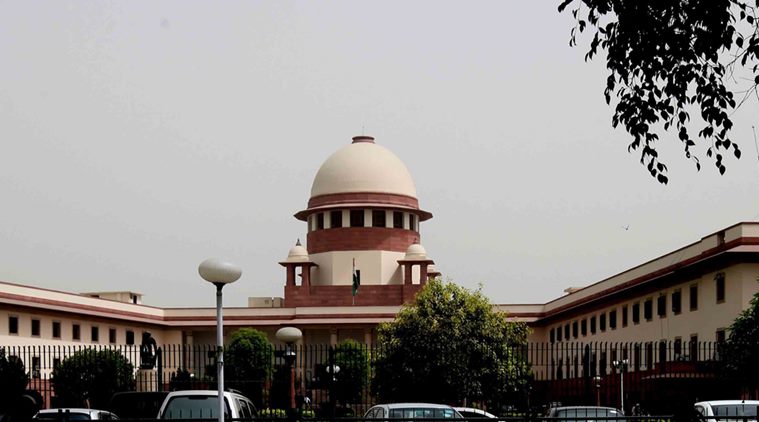
Supreme Court of India. New Delhi . Express Photo By Amit Mehra 19-04-2010
The Supreme Court Wednesday declined to examine all over again a plea filed against validity of IPC Section 377, which makes homosexuality a criminal offence punishable with a sentence up to life term. The joint petition has been filed by some prominent gay personalities — celebrity chef and restaurateur Ritu Dalmia, hotelier Aman Nath and dancer N S Johar, among others.
A bench of Justices S A Bobde and Ashok Bhushan directed that the petition be placed before the Chief Justice of India (CJI) to decide whether it can be heard along with a batch of curative petitions on the same subject.
Senior advocate Arvind P Datar, appearing for the petitioners, had requested the bench to hear the plea afresh. “This is the first time people whose rights are affected by the penal provision have come to this court,” he argued. “All previous petitions had been filed by NGOs and other groups.”
But the bench replied: “It does not make any difference. We are not inclined to hear it since another bench is already examining it.” The court said the petitioners could wait until a five-judge bench decides a bunch of curative petitions filed against the court’s judgment in 2013 on the matter. “You can wait for a decision in those matters and then decide what to do,” the bench said. “We will keep it (petition) pending till a decision is reached by the curative bench.”
Datar requested the bench to allow the petitioners to be heard by the five-judge bench when the curative petitions are taken up. However, the court said it is for the CJI to decide whether this petition should be heard along with the pending petitions, in which orders on the main judgment and review are already delivered.
In January, a bench led by CJI T S Thakur had agreed to hear in open court the bunch of curative petitions of LGBT community rights activists and groups, challenging the verdict criminalising homosexuality. A curative petition is the last judicial resort available to redress grievances in court. It is normally decided by judges in chamber, but in this case the court has agreed to grant an open-court hearing.
The petitioners contended that there was an error in the main judgment, as it was based on an old law and failed to consider various changes in law. The new petition has sought protection of their sexual rights on the ground that it is an integral part of the fundamental right to life. Stating that the petitioners are “highly accomplished professionals”, the plea says, “Despite their achievements and contributions…they are being denied the right to sexuality, the most basic and inherent of fundamental rights. Section 377 renders them criminals in their own country.”
